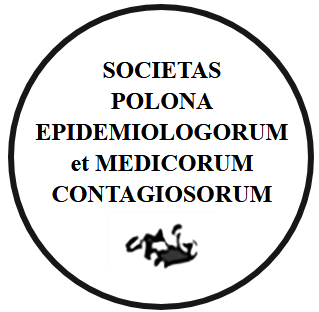ABSTRACT
In half of newly detected cases of HIV infection in Europe, the diagnosis is made late. This has significant impact on the effects of antiretroviral therapy, long-term consequences of the disease, mortality, and the risk of HIV transmission in the environment. As part of the large “STOP Late Presenters” project, the number of HIV tests was assessed in four multi-specialist hospitals in the Mazowieckie voivodeship, which generally carry out over 112,000 hospitalizations per year. First, under the structured research program, the training of medical personnel was carried out in these hospitals, and then the number of HIV tests ordered was evaluated 2 months and 4 months after the training. 459 HIV tests were performed after the training in all hospitals, which is 2.44% of hospitalizations. It is interesting to note that after 4 months, the number of performed tests fell significantly. Staff training resulted in the number of tests higher by 5.8 %, compared to the same period of previous year. Four positive results were confirmed, which is 0.87% of all tests done. This is almost twice higher than in other European countries. Tests for HIV infection are most often ordered by doctors of infectious diseases, gynecologists and the staff of dialysis departments. We found that there is little interest in HIV testing among other specialists, despite reporting patients with clinical symptoms that suggest the likelihood of this infection. The improvement in HIV testing is of great importance for public health in our country and requires modification of diagnostic algorithms in hospital wards to reduce the number of late diagnoses of HIV / AIDS.
STRESZCZENIE
Późne rozpoznania infekcji HIV dotyczą w Europie połowy nowo wykrywanych zakażeń. Ma to istotny wpływ na efekty leczenia antyretrowirusowego, odległe konsekwencje choroby, śmiertelność oraz trwające przez wiele lat ryzyko transmisji wirusa HIV w otoczeniu. W ramach ogólnopolskiego projektu „STOP Late Presenters” oceniono liczbę wykonywanych testów w kierunku HIV w czterech wielospecjalistycznych szpitalach w województwie mazowieckim, które łącznie realizują ponad 112 000 hospitalizacji rocznie. W ramach ustrukturyzowanego programu badawczego przeprowadzono najpierw szkolenie personelu medycznego w tych szpitalach, a następnie sprawdzono liczbę zleconych testów HIV w 2 miesiące i 4 miesiące po szkoleniu. We wszystkich szpitalach wykonano odpowiednio 459 i 410 testów na obecność wirusa HIV po szkoleniu, co stanowi średnio 2,44% w stosunku do liczby hospitalizacji. Zainteresowanie wykonywaniem badania istotnie zmalało po 4 miesiącach. Szkolenie personelu spowodowało wzrost liczby wykonanych testów o 5,8% w stosunku do takiego samego okresu w roku poprzednim. Potwierdzono 4 wyniki dodatnie, co stanowi 0,87% wszystkich wykonanych testów i jest prawie dwukrotnie wyższym odsetkiem w porównaniu z innymi krajami Europy, które wykonywały podobny screening infekcji HIV. Badania w kierunku HIV najczęściej zlecają lekarze o specjalnościach: choroby zakaźne, specjaliści ginekologii oraz pracownicy oddziału dializ. Zwraca uwagę niewielkie zainteresowanie testowaniem HIV wśród pozostałych specjalistów, pomimo zgłaszania się pacjentów z objawami klinicznymi, które sugerują prawdopodobieństwo tej infekcji. Poprawa w zakresie testowania HIV ma duże znaczenie dla zdrowia publicznego w naszym kraju i wymaga modyfikacji algorytmów diagnostycznych w oddziałach szpitalnych, w celu zmniejszenia liczby późnych rozpoznań HIV/AIDS.
You can change cookies settings in your browser. Restricted use of cookies in the browser configuration may affect some functionalities of the website.





